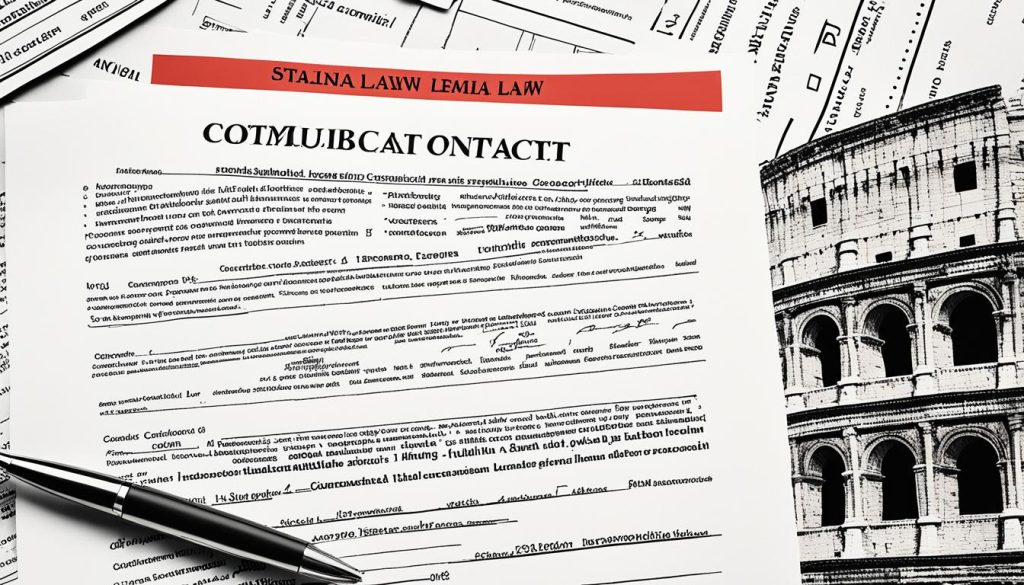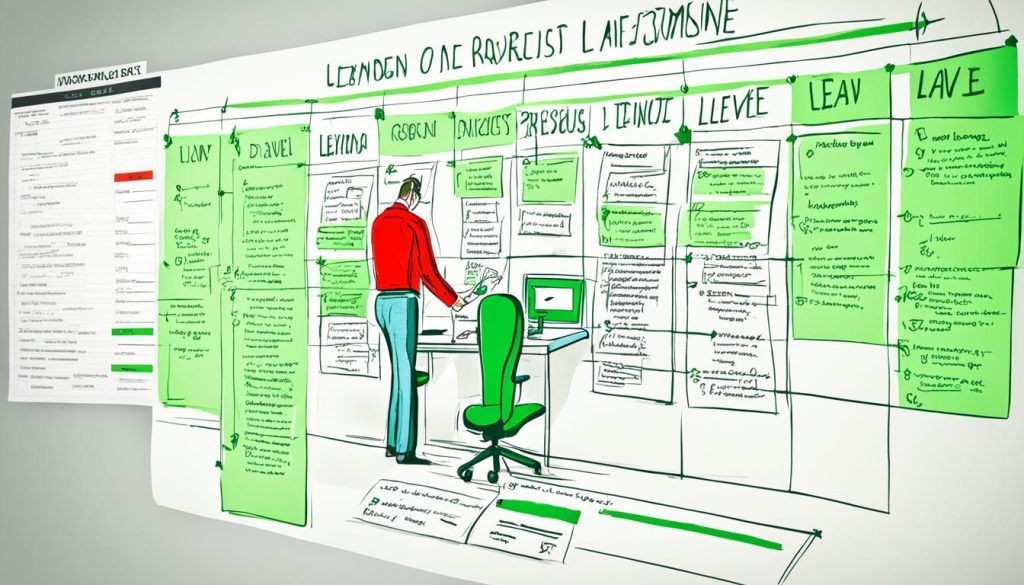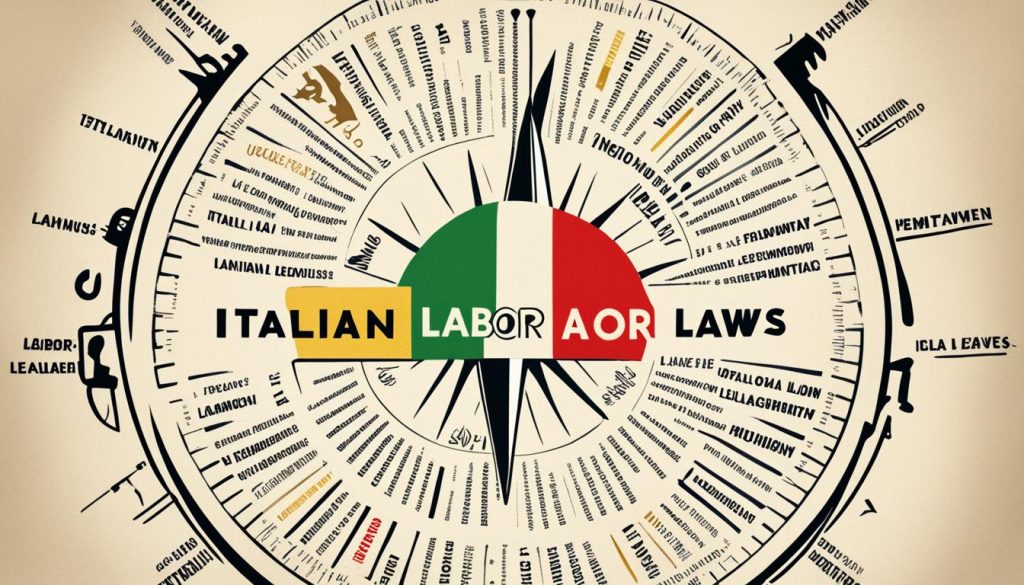It’s vital for businesses and employees to know about Italian labour laws, especially regarding work leaves. Italy’s laws provide strong protections for workers, covering areas like annual, sick, and parental leave. Understanding these rights is key for anyone employing in Italy.
- Overview of Work Leave Regulations in Italy
- Types of Work Leaves Available to Employees
- Work Leaves in Italy are Strictly Regulated by Employment Regulations
- Collective Bargaining Agreements and Their Impact on Work Leaves
- Procedures for Applying and Approving Work Leaves
- Penalties for Non-Compliance with Work Leave Regulations
- Importance of Understanding Work Leave Regulations for Employers
- Source Links
Italy is strict about employment rights, following the EU’s lead and its own Workers’ Statute. Employers need to have clear contracts that detail things like probation periods and non-compete agreements. If companies misclassify workers, they could face heavy fines, like delivery companies recently did. Staying on top of employee benefits and leave laws is crucial for any business.
Key Takeaways
- Italian labour laws ensure comprehensive employment rights and benefits.
- Statutory leave entitlements in Italy include annual, sick, maternity, and paternity leaves.
- Written employment contracts are recommended for clarity on conditions and benefits.
- Misclassification of employees can result in substantial penalties.
- Collective bargaining agreements significantly influence employee rights and benefits.
Overview of Work Leave Regulations in Italy

Understanding Italian employment laws requires careful attention, especially regarding work leave. Italy’s labour laws don’t have a national minimum wage. But, they do strictly regulate overtime and work leave rights. Workers can work up to 48 hours a week over four months, with extra pay for overtime.
Full-time workers in Italy get many benefits in their employment contracts. These include:
- Social security contributions
- Annual leave with at least four weeks of paid vacation plus public holidays
- Sick leave rules
- Maternity and paternity leave
- Extra salary in the 13th and 14th month
- Insurance for work-related accidents
It’s crucial for employers to follow Italy’s leave requirements. Not doing so can lead to big fines and legal trouble. Knowing these rules helps manage work leave well. It creates a better work environment for everyone.
Types of Work Leaves Available to Employees
In Italy, workers get different types of leave to help balance their life and work. They have annual leave, sick leave, and time off for new parents. This helps them stay happy and healthy.
Annual Leave
Annual leave in Italy gives workers at least four weeks off each year. They also get 12 public holidays. This break helps employees relax and come back to work feeling refreshed.
Sick Leave
When employees get sick, sick leave helps them without losing money. Employers pay full salary for the first three days. Then, for up to 180 days, they share the costs with INPS. Italy supports its workers when they’re ill.
Maternity and Paternity Leave
New mums in Italy get five months off work with 80% pay from INPS. Dads get 10 days of paternity leave to spend with their newborns. It shows support for both parents in the workforce.
Parental Leave
Parents in Italy can also take up to 10 more months off for childcare, though it’s not fully paid. This lets families choose the best care options for their kids while keeping their jobs.
Italy’s leave policies show its commitment to making sure workers have a good balance between their jobs and home lives. They protect employees’ rights and support family well-being.
Work Leaves in Italy are Strictly Regulated by Employment Regulations

In Italy, the law strictly controls work leave. It makes sure both workers and bosses follow the rules. This is to uphold a fair system where everyone knows their rights and duties.
At the heart of these laws, certain work leave must be given. It’s vital for firms to handle leave carefully. Not doing so could mean heavy fines.
By law, workers must get severance pay when they leave, no matter the reason. Plus, bonuses from collective agreements mean fair pay. Following these rules is crucial for legal work leave handling.
The way workers are classified is very important too. Wrong classification can harm rights and cost employers a lot. Correct classification keeps leave management right and legal.
To sum up, sticking to the laws makes sure work leave is managed well. This protects both bosses and workers in Italy’s work leave system.
Collective Bargaining Agreements and Their Impact on Work Leaves

In Italy, collective bargaining is key in shaping work leave. These talks between trade unions and employers lead to Collective Bargaining Agreements (CBAs).
- CBAs set out terms for vacation, work hours, and different types of leave.
- Companies part of these employers’ associations must follow these agreements closely.
- They make leave policies fair across industries, while considering each industry’s unique needs.
Thanks to CBAs, work leave policies in Italy balance industry norms with company rules. This ensures rights for employees and smooth running for companies.
Procedures for Applying and Approving Work Leaves

It’s key for both employees and employers in Italy to know the leave application procedures. You’ll find these outlined in employment contracts or collective agreements.
Application Process
To apply for work leave, employees should give advance notice. Sometimes, they need to show paperwork to prove they’re eligible. Here’s what to do:
- Write to your employer about the leave you need.
- Hand in any paperwork needed, like doctor’s notes for sick leave.
- Check to ensure your leave request was received and approved.
Employer’s Role
In Italy, employers have duties to cover work when someone’s away. They also manage leave approvals. They must follow the rules set in collective agreements.
- Quickly decide if the leave can be allowed or not.
- Plan how to adjust work so everything continues smoothly.
- Keep correct records of leave and stick to the agreement terms.
Dispute Resolution
When there’s a disagreement over leave, try mediation first. If that doesn’t work, legal help may be the next step. Both employers and employees should work together in this process:
- Try to solve any issues by talking and finding a middle ground.
- If talking fails, try mediation to find a solution.
- As a last option, seek a legal decision to fix the dispute.
Penalties for Non-Compliance with Work Leave Regulations
In Italy, the impact of not following work leave laws is major. If employers ignore these rules, they could face many problems. For example, wrongfully labelling employees as contractors or not giving due severance pay. They might also ignore collective bargaining terms. Such mistakes lead to fines for not following work leave laws, and show a wider issue with following Italian labour laws. This makes it vital for employers to carefully follow work rules.
The consequences of not sticking to the rules are tough. They include big fines, the need to pay for past mistakes, and possible lawsuits. Here’s a closer look at what businesses might face:
- Fines: Not following Italian work leave laws can result in heavy fines. These can greatly affect a business’s finances.
- Back Payments: Employers might have to pay for leave or benefits they didn’t give before. This can increase costs further.
- Legal Challenges: Breaking these rules can lead to legal problems. Companies might be sued by workers or face actions from regulators.
Applying these fines makes sure companies treat their workers fairly. Penalties in Italy are there to prevent the mistreatment of workers. Following leave rules is not just a law, but a moral duty. It helps in creating a better workplace for everyone.
Importance of Understanding Work Leave Regulations for Employers
Knowing about work leave laws is key for employers, especially in Italy with its strict rules. Having a good grasp of these laws helps avoid legal issues and promotes peace at work. It makes managing employee leave and keeping business running smoothly easier.
Knowing Italian work leave rules does more than just keep employers lawful. It builds trust and fairness in the workplace. Staying informed on legal rights and collective agreements lets employers make fair policies. This reduces disagreements and shows the company cares about its employees, making them more dedicated.
Following these rules has many benefits for employers. It not only avoids fines and legal problems but also boosts the company’s image as fair and just. Clear leave policies show respect for employees’ diverse needs. This trust is fundamental, ensuring everyone’s rights are protected. A workplace where regulations are fully applied becomes a place of respect and hard work.













